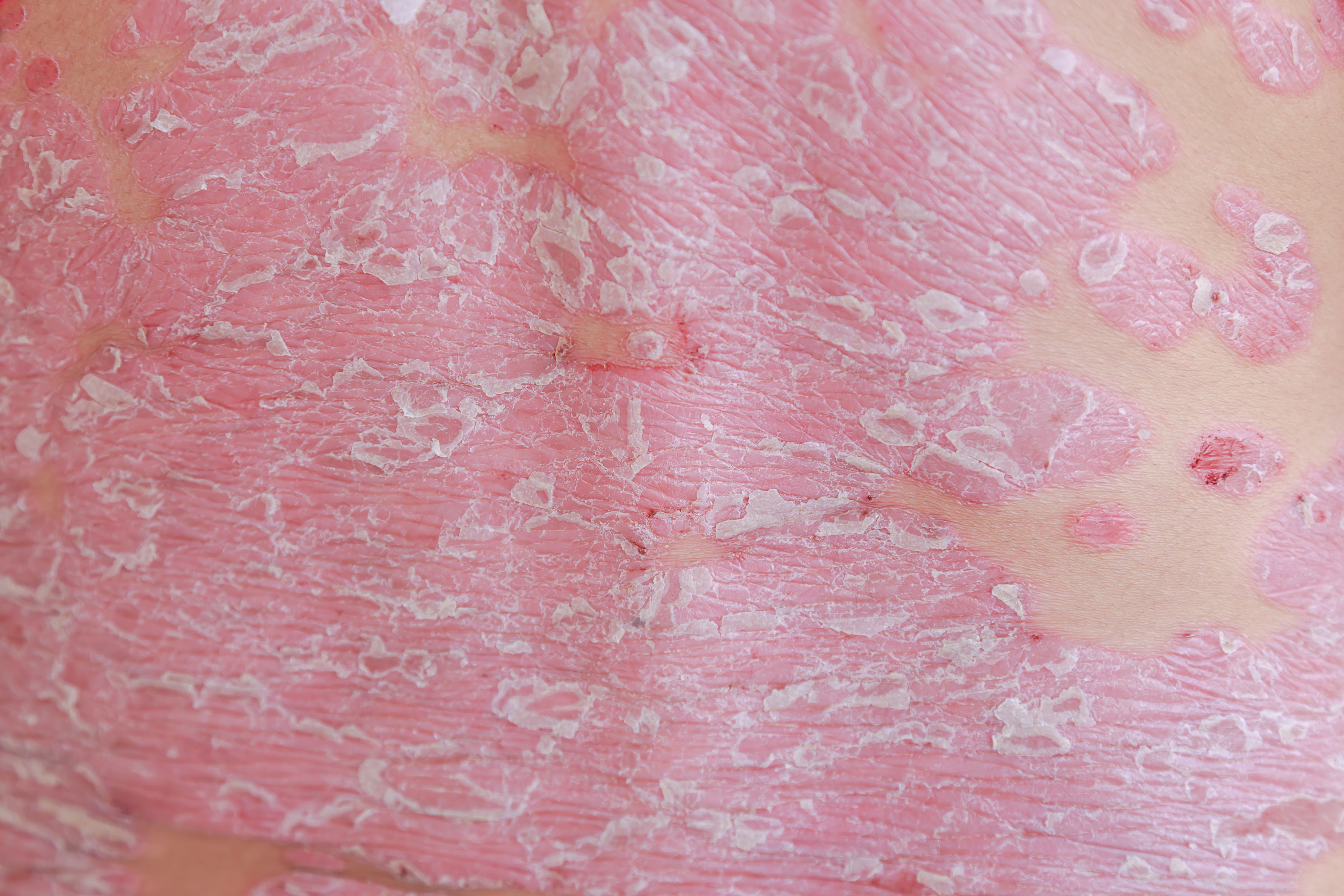- Acne
- Actinic Keratosis
- Aesthetics
- Alopecia
- Atopic Dermatitis
- Buy-and-Bill
- COVID-19
- Case-Based Roundtable
- Chronic Hand Eczema
- Chronic Spontaneous Urticaria
- Drug Watch
- Eczema
- General Dermatology
- Hidradenitis Suppurativa
- Melasma
- NP and PA
- Pediatric Dermatology
- Pigmentary Disorders
- Practice Management
- Precision Medicine and Biologics
- Prurigo Nodularis
- Psoriasis
- Psoriatic Arthritis
- Rare Disease
- Rosacea
- Skin Cancer
- Vitiligo
- Wound Care
Article
VEGF-A Inhibition Downregulates Blood Vessel Area in Psoriasis
Author(s):
In patients with high levels of VEGF-A and more severe psoriasis, downregulation of blood vessel area is more abrupt.
In an ex vivo study1, investigators found that vascular endothelial growth factor-a (VEGF-A) downregulates angiogenesis and blood vessel area in skin with psoriasis plaques. Furthermore, this downregulation is more abrupt among patients with psoriasis who have more severe disease or higher levels of VEGF-A.
WARIT/AdobeStock

Researchers sought to examine VEGF-A's impact on blood vessels, the epidermis, and immune cells in skin with and without psoriatic lesions, citing the known role of VEGF-A mediated angiogenesis in the pathogenesis of the disease. The study was the first to objectively examine the role of VEGF-A inhibition and its potential role as a treatment strategy for psoriasis. These data and findings lead researchers to believe that VEGF-A blocking therapy could be beneficial in patients with high levels of VEGF-A in their skin or plasma or with more severe psoriasis.
6 volunteers with psoriasis and 6 without the disease were recruited by researchers. Prospective participants with inflammatory arthropathy or who had used topical treatments (4 weeks prior) or systemic treatments (12 weeks prior) were excluded from participating.
Upon participant enrollment, researchers conducted skin sampling through skin punch biopsies taken from the same body site. In participants with psoriasis, researchers took 2 biopsies from regions of the skin with psoriasis plaques and 2 biopsies from skin without psoriatic lesions. Biopsies, once collected, were incubated and cultured.
Researchers also conducted examinations of histochemistry, immunofluorescence, and quantitative immunohistomorphometry. They also conducted a peripheral blood mononuclear cells culture, VEGF-A level quantification, DNA extraction, genotyping, and a statistical analysis.
In an organ culture, researchers found that the inhibition of VEGF-A with bevacizumab blocked free VEGF-A. At hours 12 and 48, skin incubated with 0.8 mg/mL of bevacizumab had undetectable levels of VEGF-A.
In skin samples with psoriasis plaques, VEGF-A blockade decreased the overall number of blood endothelial cells and blood vessel area. Additionally, VEGF-A inhibition did not significantly change the parameters of epidermal read-outs. Inhibition also had no significant changes on the number of CD4+ cells, CD8+ T-cells, or tryptase+-mast cells in skin samples with psoriasis. Researchers were also unable to identify an association between genotype and patient response to anti-VEGF-A treatment.
While levels of VEGF-A plasma levels did not show significant differences between participants with and without psoriasis plaques, patients with more severe psoriasis tended to have higher levels of VEGF-A plasma levels than those with less severe disease.
According to researchers, potential study limitations included the limit number of volunteers and skin samples, as well as the study’s ex vivo nature.
“This pilot study provides proof-of-principle for the investigation of VEGF-A inhibition as an adjuvant management strategy to selectively target vascular pathology in psoriasis,” study authors wrote. “This approach could be especially beneficial for patients who have high levels of VEGF-A, offering an opportunity to personalize management and complement current anti-cytokine strategies and other standard-of-care psoriasis therapeutics.”
Reference
- Luengas‐Martinez A, Ismail D, Paus R, Young HS. Inhibition of vascular endothelial growth factor‐a downregulates angiogenesis in psoriasis: A pilot study. Skin Health Disease. Published online May 15, 2023. doi:10.1002/ski2.245
Newsletter
Like what you’re reading? Subscribe to Dermatology Times for weekly updates on therapies, innovations, and real-world practice tips.







